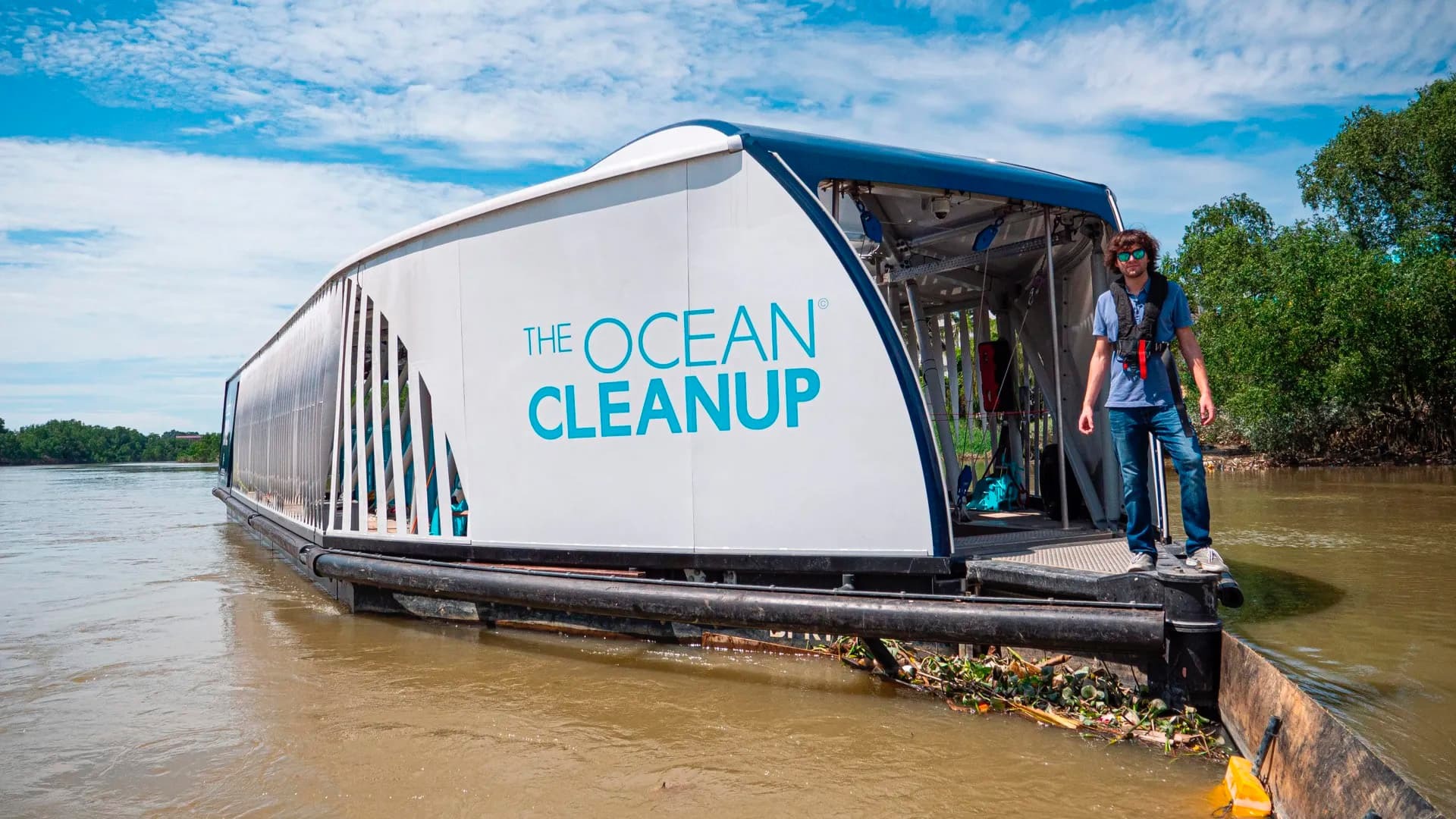Recycle Recycling plays a crucial role in waste management and environmental sustainability by conserving resources, reducing consumption, minimizing pollution and landfill waste.
The Ocean Cleanup
It’s incredible what one person can achieve, and Boyan Slat is a prime example. A Dutch inventor and entrepreneur, his story begins at the age of 16 while on vacation in Greece. During a scuba diving excursion, he encountered more plastic bags than fish in the sea. This shocking sight ignited the spark that launched his remarkable journey.

Boyan Slat in Asia
Studied Aerospace Engineering, becomes a Cleaner
With just €300 of saved-up pocket money, Boyan Slat dropped out of his Aerospace Engineering degree at Delft University of Technology to develop his plan, initially facing numerous challenges. However, a few months later, everything changed when his TEDx presentation went viral after being picked up by various news blogs. This surge in publicity enabled Boyan to gather an initial team of volunteers and launch a crowdfunding campaign, which financed a year-long feasibility study—the first concrete step toward realizing his technological solutions. This marked the beginning of The Ocean Cleanup.
When people say something is impossible, the sheer absoluteness of that statement should be a motivation to investigate further.
Since then, much progress has been made. In the first eight years of The Ocean Cleanup, 314,000 kg of trash was collected. Now, they are removing the same amount every 4.5 days. As of July, they have surpassed a total of 15,000,000 kg of trash removed from oceans and rivers worldwide. I highly recommend watching this video below.
Belgium Second Largest Food Waster in Europe!
That this bit of news went unnoticed in the media is truly astonishing. It turns out that in 2020, Flanders wasted nearly 900.000 tons of edible food, an amount sufficient to provide nourishment for over 800.000 people for a year. Unfortunately, this places Belgium near the bottom of the European rankings, with only Cyprus performing worse.

The Seriousness of the Problem
Flemish policy does not recognize the seriousness of the problem and the Court of Audit also explicitly commented on how Flanders (barely) combats food loss. Go read the report 'How Flanders fights food waste and food loss' (PDF in Dutch)
On paper, Flanders follows the international objectives and wants to reduce food loss by 30% between 2015 and 2025. According to the new figures, food loss fell by only 2% between 2015 and 2020. In practice, moreover, the main focus is on valorisation: using food waste for animal feed, to generate energy or to compost.
The food industry's impact is remarkable as evident from the analysis. The combined edible and non-edible food losses reach nearly 2 million tons. However, according to the report, 99% of this waste is repurposed for animal feed, energy generation, or incineration. While re-allocating surplus food to other sectors may be applauded, it remains an insufficient policy approach, especially when compared to our neighbouring countries. The food industry in Belgium discards 161 kg of food per person annually, whereas the numbers are significantly lower in the Netherlands (59 kg), France (29 kg), and Germany (19 kg).
Within the existing system, the production of food carries inevitable environmental, climate, and health consequences. Notably, food loss alone accounts for a staggering 8% of our greenhouse gas emissions. Ever since I began using Hellofresh several years ago (418 boxes so far), I have noticed that we no longer waste any food. That's the wonderful aspect of this system - everything is perfectly portioned, and as an added bonus, it promotes healthy eating.
Source: Bond Beter Leefmilieu
Photo by Ella Olsson at Unsplash

